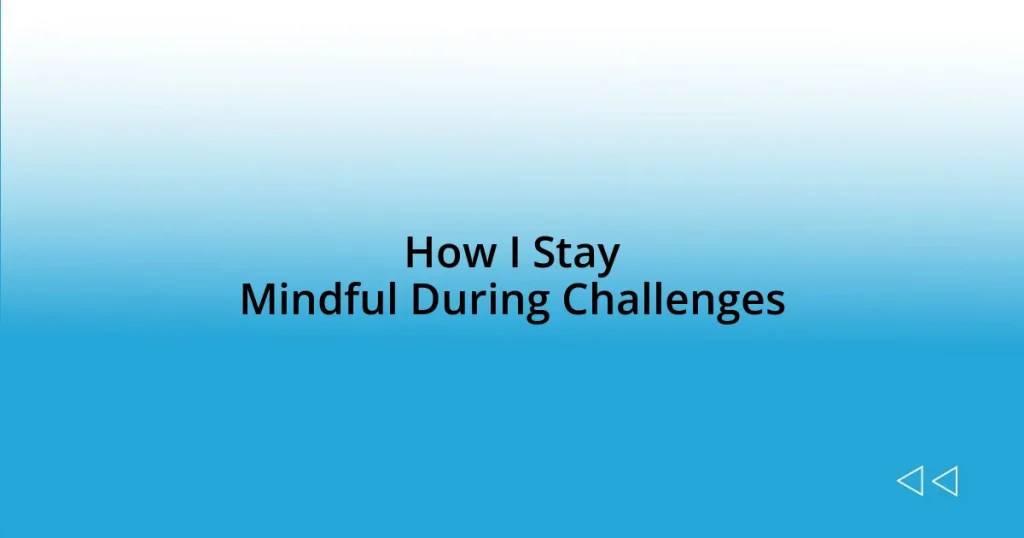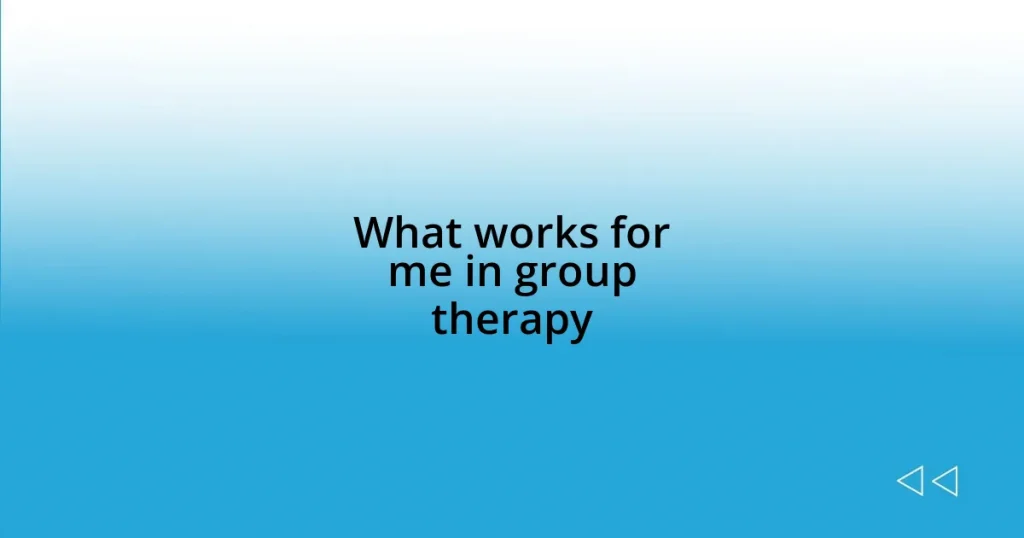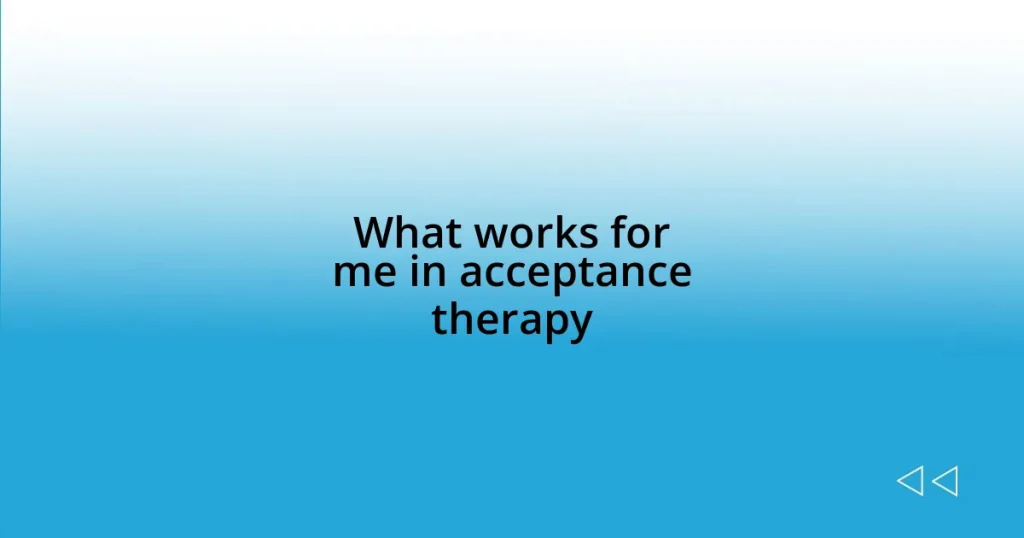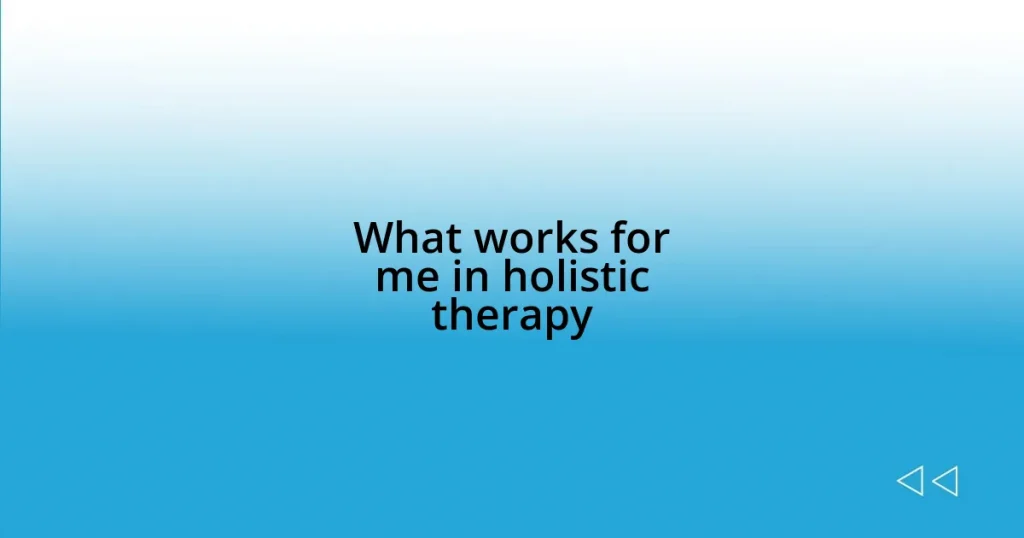Key takeaways:
- Mindfulness involves present-moment awareness and can be practiced through simple breathing techniques to manage stress.
- Recognizing and categorizing challenges is essential for effective stress management and encourages self-awareness.
- Practicing gratitude during tough times helps shift focus and build resilience, often leading to positive emotional outcomes.
- Reflecting on past challenges can uncover personal growth and enhance understanding of oneself, enriching future experiences.
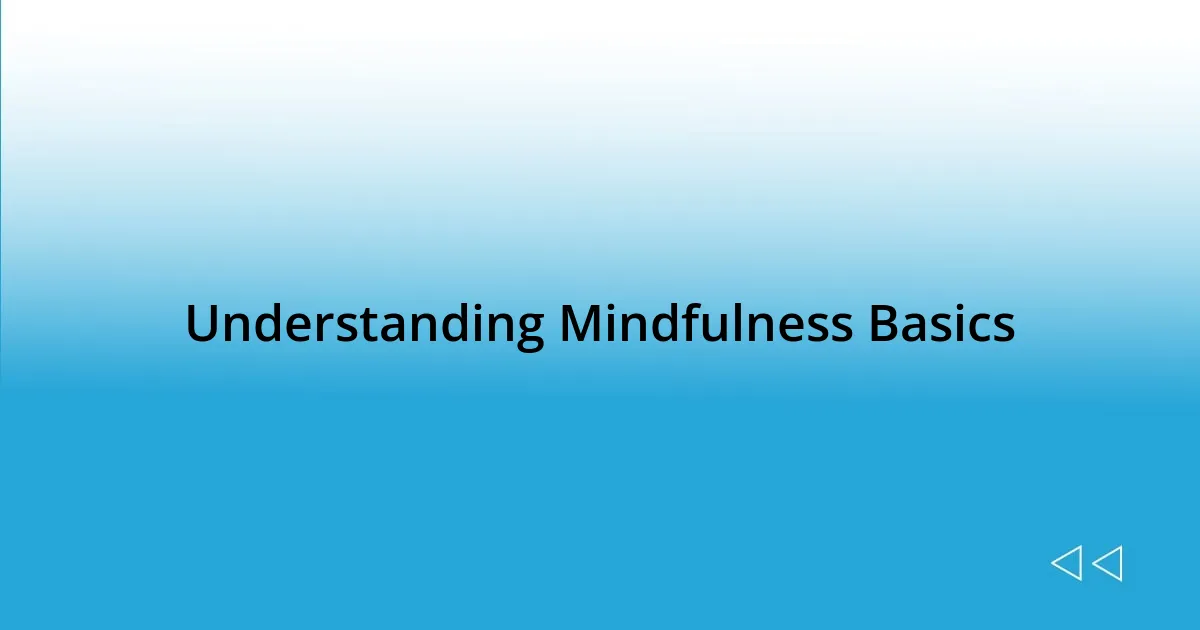
Understanding Mindfulness Basics
Mindfulness is essentially the practice of being aware of the present moment without judgment. I remember a time when I was overwhelmed with stress; finding a quiet corner and simply focusing on my breath helped me gain clarity. Have you ever noticed how just taking a moment to breathe can shift your entire day?
At its core, mindfulness invites us to observe our thoughts and feelings rather than getting caught up in them. I often visualize my anxieties as clouds floating by; I acknowledge their presence, yet I don’t let them become a storm. Isn’t it fascinating how we can learn to let go of what we can’t control?
The beauty of mindfulness lies in its simplicity and accessibility. You don’t need any special equipment or a vast amount of time; even a few minutes of conscious breathing can transform how you face challenges. Have you tried taking just five minutes during a hectic afternoon to check in with yourself? That small practice can create a ripple effect of peace throughout your day.
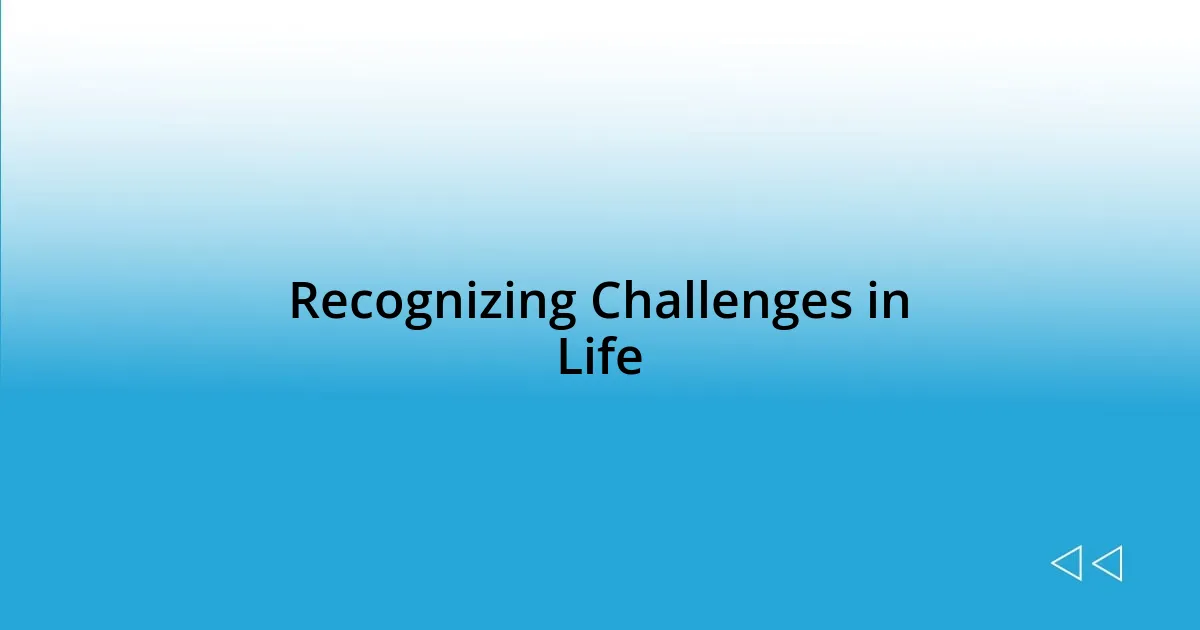
Recognizing Challenges in Life
Recognizing challenges in life is often the first step toward addressing them. I recall a particularly chaotic week where it seemed that every aspect of my life demanded my attention. A friend gently pointed out that I was juggling worries about work, family, and my personal health all at once, and that realization was a bit of a wake-up call. Have you ever found yourself overwhelmed by a myriad of responsibilities, only to realize you need to pinpoint what truly needs your focus?
It’s surprisingly easy to overlook the signs of mounting challenges. In my experience, the small indicators—like irritability or difficulty concentrating—are often the first signals that something isn’t right. Ignoring these feelings can lead to deeper stress, which is why I’ve learned to pause and evaluate my emotional state regularly. Isn’t it interesting how self-awareness can sometimes feel like having a compass in stormy seas?
When I take the time to identify and categorize my challenges, I become more empowered to address them. I like to think of it as creating a personal inventory of stressors, sorting them into manageable pieces rather than facing a daunting whole. For instance, identifying whether my stress is related to a project deadline or a personal relationship helps me strategize effectively. What have you discovered about your own challenges that allows you to tackle them with more intention?
| Type of Challenge | Indicators |
|---|---|
| Work-Related | Missed deadlines, increased workload |
| Personal Relationships | Frequent misunderstandings, emotional distance |
| Financial | Worries about expenses, difficulty budgeting |
| Health | Fatigue, changes in sleep or appetite |
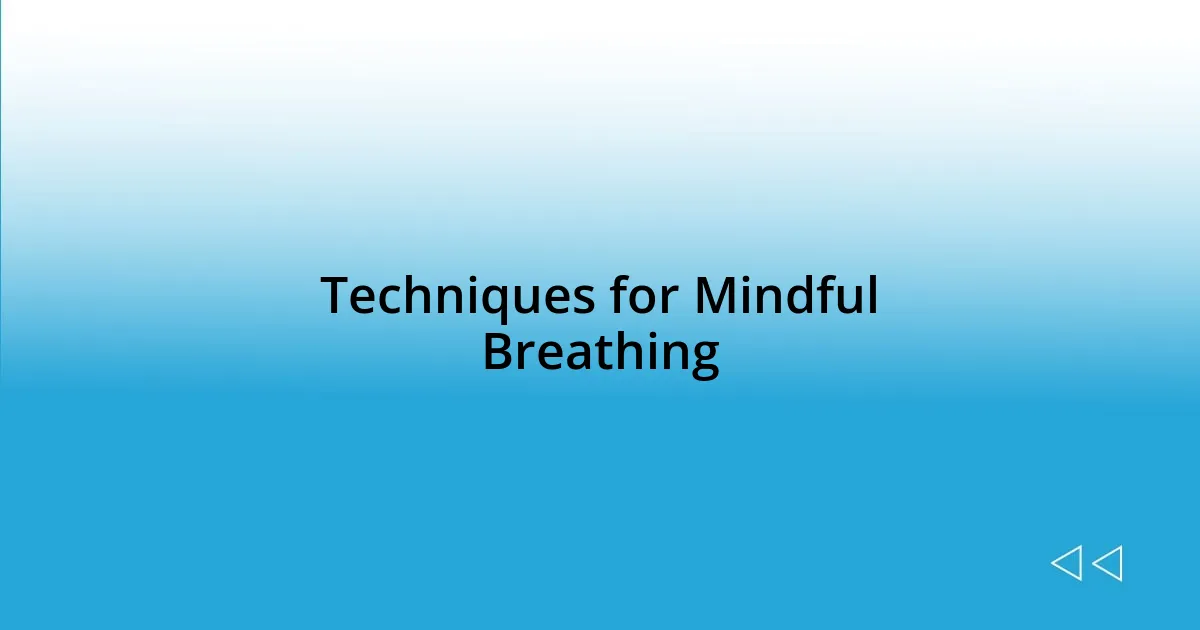
Techniques for Mindful Breathing
Techniques for Mindful Breathing
Mindful breathing is one of the simplest yet most profound methods I’ve found for grounding myself during turbulent times. I recall a particularly stressful morning when everything seemed to go wrong; I took just a moment to close my eyes, inhale deeply, and exhale slowly. That brief pause helped me reset my perspective and approach the day with clarity. Don’t you find that even a few conscious breaths can make a world of difference?
To practice mindful breathing effectively, consider these techniques:
-
Deep Belly Breathing: Place one hand on your belly and the other on your chest. Inhale deeply through your nose, feeling your belly rise, then exhale through your mouth, allowing your belly to fall. This engages your diaphragm and promotes relaxation.
-
4-7-8 Breathing: Inhale through your nose for a count of 4, hold your breath for a count of 7, and exhale slowly through your mouth for a count of 8. This method really slows down your heart rate and soothes the nervous system—I’ve found it particularly useful during sleepless nights.
-
Box Breathing: Inhale for 4 counts, hold for 4 counts, exhale for 4 counts, and hold for another 4 counts before taking your next breath. It’s like drawing a box with your breath, and I often visualize a calming color for each phase, which helps me stay focused.
-
Mindful Observation: As you breathe, pay attention to the sensations—how the air feels entering your nostrils or the sound of your breath. This enhances your awareness and pulls you back to the present moment!
-
Nature Breathing: When outdoors, synchronize your breaths with the rhythm of nature, like the sound of waves or rustling leaves. This connection to the environment deepens the whole experience and often leaves me feeling rejuvenated.
By incorporating these techniques, I’ve turned my breathing practice into a refuge during challenging moments. It’s fascinating how something as simple as focusing on the breath can empower us to face life’s hurdles with a sense of ease and clarity. What techniques do you find helpful for bringing your focus back to the present?
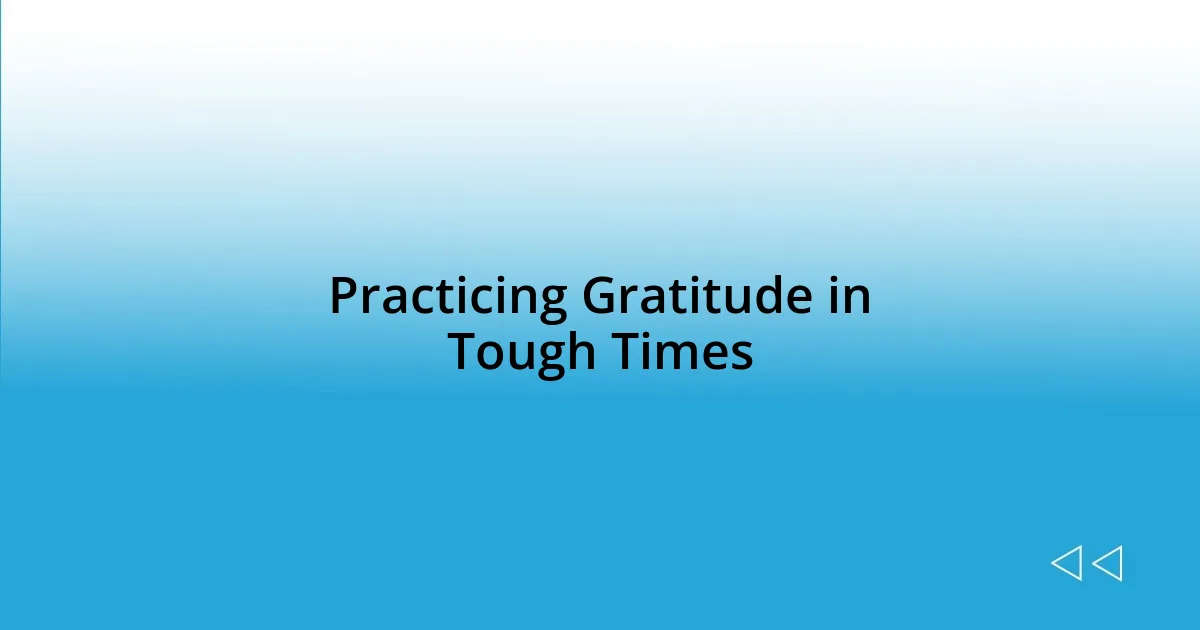
Practicing Gratitude in Tough Times
Practicing gratitude during tough times can feel counterintuitive, but I’ve found it to be transformative. I remember a particularly challenging period where everything felt like a storm; instead of getting swept away, I began jotting down three things each day that I was grateful for. This simple practice shifted my focus, revealing the silver linings even when adversity loomed large. Have you ever noticed how acknowledging small blessings can inspire a sense of relief?
In those difficult moments, I often turn to my loved ones for support, recognizing the warmth of their presence as something to cherish. There was a day when I received a text from a friend reminding me of fun memories we shared. I felt my burdens lighten, realizing that connections are invaluable during hardships. It’s interesting how a brief interaction can serve as a beacon of hope, isn’t it?
I’ve also discovered that expressing gratitude isn’t just about reflecting on positives but sharing them with others. When I write thank-you notes or simply voice my appreciation, I notice a ripple effect; my positivity seems to bounce back, often creating a cycle of joy that elevates everyone’s spirits. Wouldn’t it be amazing if we all took a moment to actively practice gratitude, especially during life’s tougher chapters?
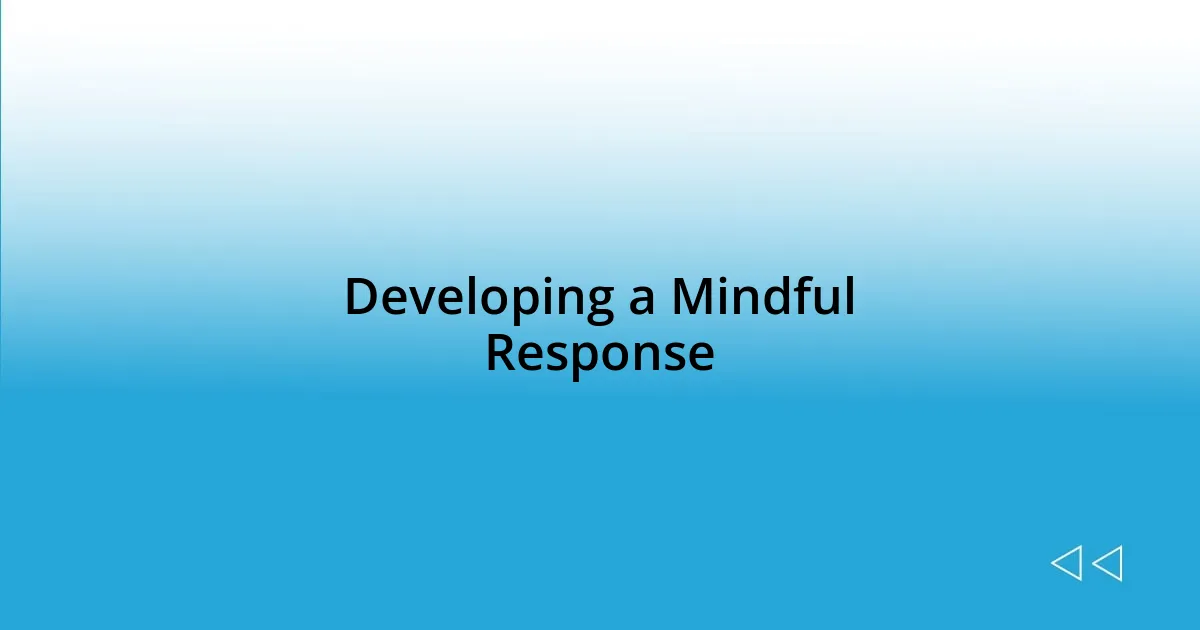
Developing a Mindful Response
Finding a mindful response amid challenges often starts with self-awareness. For me, it’s about recognizing the first signs of stress—like tension in my shoulders or a racing heartbeat. I recall a time when I felt overwhelmed by work deadlines; instead of reacting hastily, I paused, took stock of my feelings, and identified my triggers. By understanding my reactions, I was better equipped to choose a calmer approach. Have you ever noticed how tuning into your body’s signals can guide you towards more thoughtful responses?
Once I’m aware of my feelings, I find it helps to consciously shift my perspective. I faced a tough conversation recently, and instead of bracing for conflict, I reminded myself to view it as a learning opportunity. This subtle shift made a profound difference, transforming anxiety into curiosity. I’d love to know if you’ve had similar experiences where reframing a situation allowed you to respond more mindfully.
In addition, I’ve learned that taking small, intentional actions can solidify a mindful response. During a heated discussion, for instance, I practiced the ‘pause’ technique—just a brief moment of silence to collect my thoughts before responding. This not only calmed my nerves but also allowed for more meaningful communication. It’s incredible how such simple practices can deepen connections, isn’t it? Developing these mindful responses has truly enriched my interactions and minimized unnecessary turmoil in my life.
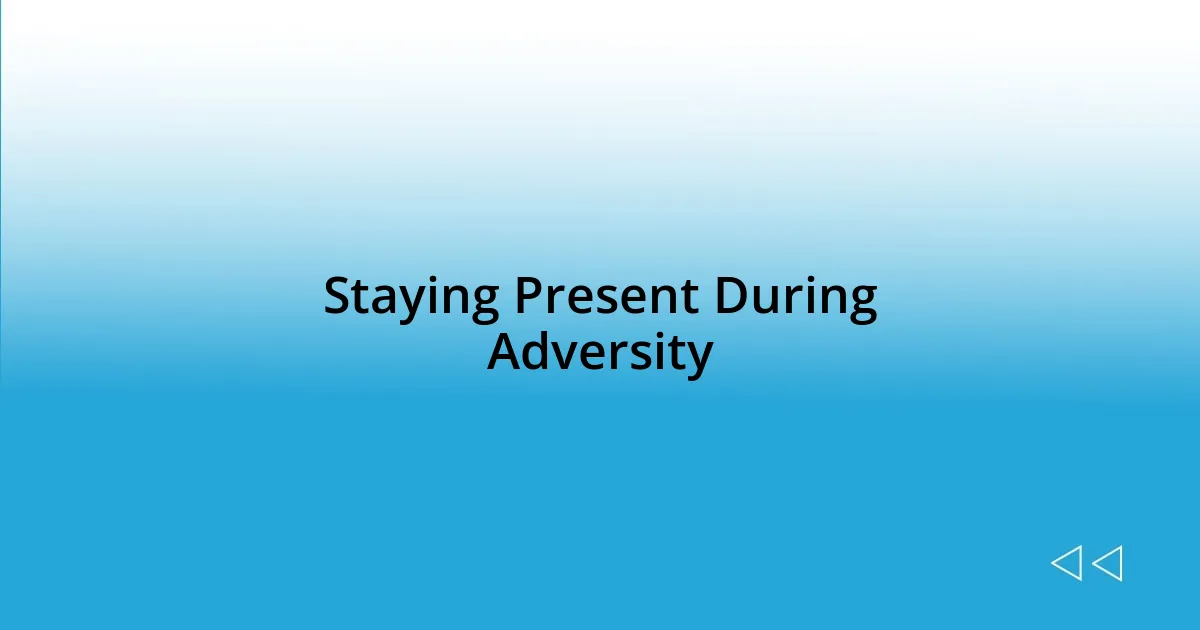
Staying Present During Adversity
Staying grounded during hard times can be quite the challenge, yet I find it essential for nurturing resilience. Recently, when faced with unexpected change, I caught myself spiraling into worries about the future. Instead of letting my mind race ahead, I focused on my breath, noticing how each inhale and exhale brought me back to the present moment. Have you tried anchoring yourself in your breath during turbulent times? It works wonders!
I remember a day when everything seemed to go wrong—a rainy morning turned into an unexpected job setback. In that moment, I opted to step outside and feel the rain against my skin. Instead of viewing it as a nuisance, I embraced the cleansing sensation. It was almost liberating. This simple act of immersing myself in nature helped me realize how often we forget to acknowledge our surroundings when we’re distressed. How often do we overlook the beauty in the little things during tough times?
The practice of staying present has also led me to appreciate the emotional process of adversity itself. During a difficult family situation, I found myself really sitting with my feelings—anger, frustration, and sadness all mingled together. Rather than suppressing them, I leaned into each emotion, journaling about my experiences and feelings. This exploration made me realize that it’s completely okay to not be okay sometimes, and by honoring those feelings, I was able to move forward with greater clarity. Isn’t it fascinating how our struggles can deepen our understanding of ourselves?
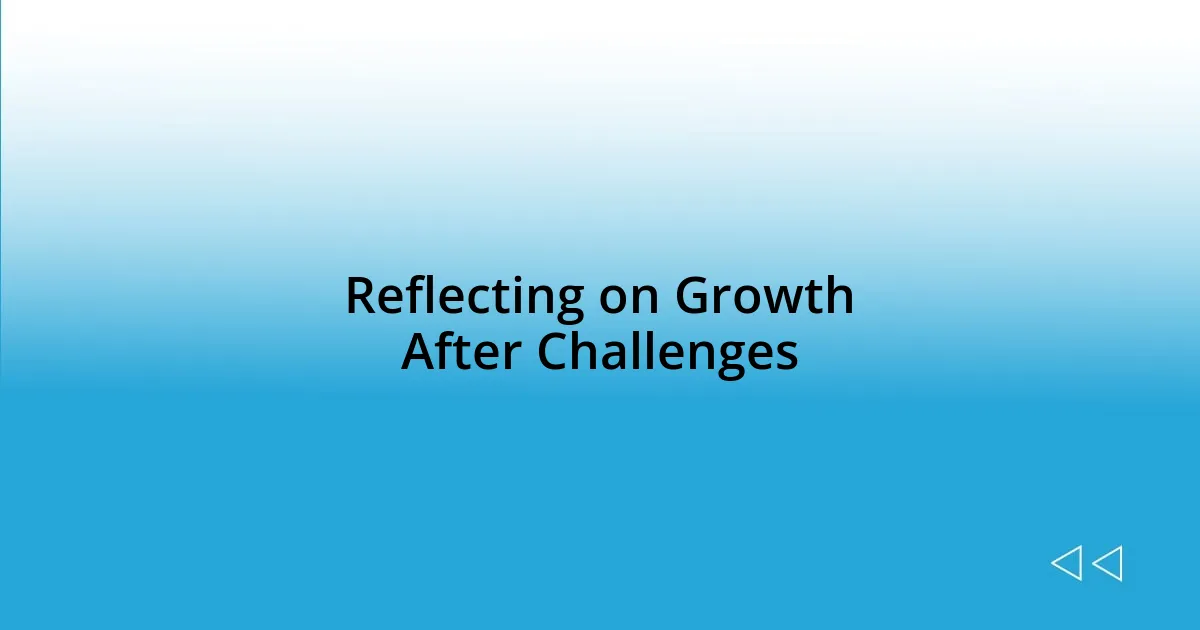
Reflecting on Growth After Challenges
Reflecting on challenges can be like unearthing hidden treasures in the depths of our experiences. I recall a particularly taxing project that seemed insurmountable at first. As I looked back after its completion, I was surprised to find not just the lessons learned about time management and teamwork but also a newfound belief in my abilities. Have you ever experienced a moment where a challenge turned into a confidence booster?
When I take the time to reflect, I often jot down my thoughts and feelings in a journal. Recently, I wrote about a disagreement with a close friend that initially felt devastating. As I sifted through my emotions, I realized not only the importance of communication but also how that experience strengthened our bond. It’s amazing how challenges can reveal deeper insights, don’t you think?
As I sit with my reflections, I’ve noticed how gratitude often emerges alongside the lessons. After navigating a particularly challenging family situation, I found myself appreciating my support system and the resilience I cultivated within myself. By acknowledging both the difficulties and the growth they sparked, I’ve learned to embrace life’s rollercoaster with open arms. Have you thought about what you’re grateful for after facing a challenge?











